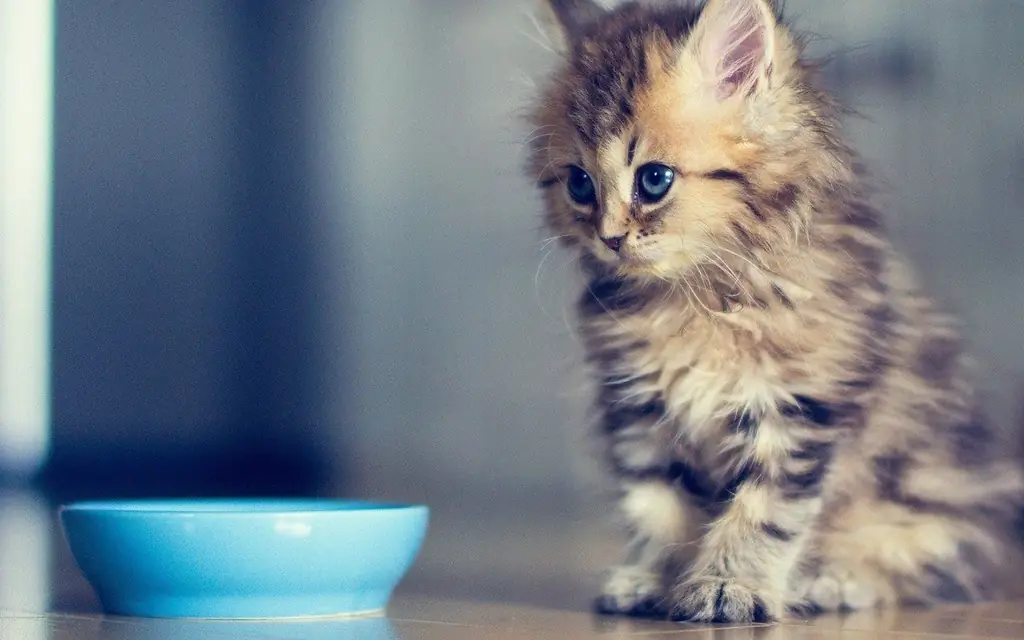
Table of contents:
- Author Bailey Albertson albertson@usefultipsdiy.com.
- Public 2024-01-17 22:26.
- Last modified 2025-01-23 12:41.
How to feed kittens properly

The kitten's body is not yet adapted to adult nutrition. In the first weeks of life, the optimal food for him is mother's milk. After moving to another family, the question of choosing products for a small "lump" may arise. This should be taken seriously, then the pet will not have health problems.
Content
- 1 Basic rules for feeding kittens
-
2 General tips for feeding
- 2.1 Which is better to choose: ready-made feed or natural food
- 2.2 Can I feed an adult cat
- 2.3 Can I only feed dry or wet food
- 2.4 Video: how to feed kittens correctly
-
3 Feeding kittens at different stages of life
- 3.1 Newborn kitten
- 3.2 1 month
- 3.3 2 months
- 3.4 3-5 months
- 3.5 Older than 6 months
-
4 Feeding kittens with natural food
- 4.1 Video: how to cook a dish for a kitten from raw meat
- 4.2 Permitted and prohibited foods for kittens
-
5 Assortment of ready-made food for kittens
- 5.1 Composition of ready-made food for kittens
-
5.2 Table: overview of the best brands of feed
5.2.1 Photo gallery: ready-made food for kittens
- 5.3 Video: Comparison of feed from different manufacturers
- 6 Reviews of veterinarians about feed
- 7 Reviews of kitten owners about food
Basic rules for feeding kittens
The kitten still has a poorly developed sense of proportion, so he can eat not only when he is hungry, but also if he is bored. Therefore, the frequency of feeding should be controlled by the owners of the pet. To do this, you need to be guided by the principle - feed twice as often as an adult cat. On average, the frequency may be as follows:
- up to 2 months - 5-6 meals, while portions should not be large (20-30 g);
- from 2 to 4 months - 4 times a day;
- from 4 to 6 months - 3 times a day;
- from 7 months you can gradually switch to two meals a day.
General feeding tips
In feeding kittens, not only the amount of food and the frequency of meals are important, but also the quality of the food.
Which is better to choose: ready-made food or natural food
No veterinarian will be able to give an unequivocal answer to this question, which is better: ready-made feed or natural food. The choice is most often based on financial and time capabilities, because buying high-quality feed requires a lot of money, and preparing a full-fledged and fortified dish takes time. But at the same time, it is worth considering other factors:
- kitten breed;
- his taste preferences;
- health status;
- floor.

A kitten needs a sufficient amount of vitamins, macro- and microelements
If you have both funds and time, then it is worth weighing the advantages and disadvantages of each type of food:
- When choosing natural food, the owner will have the opportunity to independently choose only fresh and high-quality products for the kitten. Other advantages follow from this - the absence of chemical additives and absolute safety (we are talking about a healthy kitten, since if you have any diseases, you may need to follow a diet). Also, the kitten will receive a varied diet every day that is not addictive. The basis of a kitten's diet should be proteins (60% of the daily food intake), because it is this element that is involved in the "building" processes. Most protein in meat products. But the body of a small pet may lack vitamins, so they will have to be given separately.
- The finished feed is complete, contains not only all the substances necessary for growth, but also vitamins, macro- and microelements. Only ready-made food of the economy class has disadvantages, since they contain a large amount of mineral salts and preservatives that can have a bad effect on a fragile body.
Is it possible to give food for an adult cat
It is not recommended to give kittens food for adult cats, although this desire arises among the owners in the event that a cat lives in the family with its kittens. Here are some arguments in favor of feeding adults and babies separately:
- For full development, a kitten needs a lot of energy, which it can get from high-calorie food. But food for adult cats does not have a high energy value. Therefore, the baby can become not only lethargic, but also lag behind in development.
- Small animals need an increased amount of vitamins, macro- and microelements, which cannot be provided by nutrition for adults.
- Kittens are unable to chew large chunks, so adult cat food may not be the right size.

It is not recommended to feed the kitten with food for adults.
Can I only feed dry or wet food?
High-quality dry cat food is a balanced diet, that is, it contains the required amount of proteins, fats, carbohydrates, vitamins, micro and macro elements. This allows us to conclude that it is possible to feed a kitten only with such food, but only after it reaches two months of age. At the same time, experts say that when choosing "drying", natural food should not be included in the diet, since an imbalance may appear (the kitten will receive some substances in excess, and some will not receive at all). And the animal's digestive system will have to rebuild too often, which can lead to its disorder.

The composition of wet and dry food differs only in the amount of water
There is no confirmation of the myth that dry food can cause the development of urolithiasis. But this is only if a high-quality mixture was selected for nutrition without a large amount of dyes, flavors and other additives.
Following some rules will also help to avoid negative consequences:
- the cat should always have access to clean water;
- it is impossible to mix feed from different manufacturers (it is recommended to immediately give preference to a certain feed without conducting "experiments");
- every six months, a preventive examination and a blood test are needed, which will help determine whether the pet has enough vitamins, macro- and microelements.
The composition of dry and wet food differs only in the amount of water in it. Therefore, it is impossible to say that one of them is better. The differences lie in the speed of movement through the digestive system. When eating dry food, the kitten begins to drink more water, which promotes food.
The kitten can be fed only dry and only wet food. They are digested equally well. But if the owner decided that the pet should eat both dry and wet food at the same time, then the share of the first should be 75% of the diet, and the second - 25%. However, you cannot mix them in one plate.
Video: how to feed kittens correctly
Feeding kittens at different stages of life
A kitten's diet should change with its growth. In each period of life, an animal needs certain nutrients.
Newborn kitten
The neonatal period lasts 4 weeks. At this age, the ideal food for a kitten is mother's milk. If he was weaned, then you can use special milk for kittens.

The best replacement for mother's milk for a kitten will be a special dry mixture
It is strictly forbidden to give cow's milk, since it is too fat, and the baby's digestive system will not cope with this product. Alternatively, cream diluted with water is suitable. Norms for the amount of food:
- the first week - 30 g of food per 100 g of the kitten's weight;
- the second - 35 g;
- third - 40 g;
- the fourth - 48-53
You can find out that the kitten has enough food by gaining weight. Ideally, the increase should be 15 g per day.

When feeding a kitten that was left without a mother, use special bottles
1 month
After the neonatal period is over, complementary foods can be introduced. In this capacity, you can choose boiled quail eggs, pre-chopped, or baby food (meat, you must not forget that the kitten, although small, is still a predator).

You can choose baby food with meat for feeding kittens
The diet is also important. The number of meals should be six, the daily rate is 150 g. Milk can be gradually removed from the diet.
2 months
At the age of 2 months, the kitten can be gradually transferred to dry food. The first portions should be soaked in water or milk, and then mixed with meat-based baby food. In addition to such food, boiled beef, chicken fillet must be present in the diet.
3-5 months
The number of meals can be reduced to four, while the daily rate is 240 g. Additionally, you need to adhere to another rule - a quarter of the diet is meat products. For this purpose, you can choose:
- ready-made dry food;
- canned cat food;
- frozen beef;
- chicken fillet;
- boiled chicken or beef heart.
The kitten's nutrition should be complete and varied, rich in vitamins, micro- and macroelements. This is very important for the development of the animal.
Over 6 months
At the age of 6 months, you can transfer the kitten to a three-day diet, but you should not increase the daily feed rate greatly, by a maximum of 10 g. There may not be any changes in the diet, you can introduce only one new product, for example, chicken stomachs.
You can start transferring a kitten to adult food from 10 months. This should be done gradually, as a sudden change in diet can cause stomach upset.
The daily feed rate is 200 g. The diet can include so-called delicacies, for example, raw chicken necks and heads.
Feeding kittens with natural food
Natural food is ideal for kittens of all ages. But it is worth remembering that natural cat food is not the one on the host's plate. It should be specially prepared food from natural products of high quality without any chemical additives.
Video: how to cook a dish for a kitten from raw meat
Permitted and prohibited foods for kittens
If the kitten eats natural food, then the owner should know which foods are allowed and which ones are strictly forbidden to enter into the diet of a small pet.
For full development you need:
- non-fat fermented milk products (important for the development of the skeletal system and teeth) - kefir, fermented baked milk, natural yogurt, low-fat curd;
- cereals (cereals and cereals), which are recommended to be cooked in milk, vegetable or meat broth;
- vegetables (fresh or boiled) - carrots, pumpkin, cabbage;
- fish, necessarily lean and seafood, since it is boneless;
- sprouted oats or wheat;
- Brewer's yeast;
- vegetable oil (0.5 tsp. every 3 days).
Prohibited products are:
- fat meat;
- bones (they can damage the esophagus);
- whole milk (cats do not have enzymes to digest it);
- raw egg white;
- products for people, namely, canned food, pickles, smoked meats;
- tomatoes, eggplants, onions and garlic;
- chicken skin;
- chocolate (this harmless product is toxic to the feline body).
If you want to introduce vitamin complexes into the diet, you need to choose those intended for cats. You can buy such a drug at a vetaptek.

When feeding with natural products, veterinarians recommend adding special vitamin complexes to the diet
Assortment of ready-made food for kittens
The range of dry and wet food for kittens is very wide. But all products are divided into several groups:
- Economy. For the manufacture of such feed, the cheapest raw materials are used, for example, by-products and soybeans. In addition, preservatives, colorings and flavor enhancers may be included. There are few vitamins in such a package. The pet will definitely like this food because of the various additives, but it cannot be called the best for the kitten. In addition, addictive ingredients may be included. If it is not possible to purchase a more expensive product, then vitamin and mineral complexes should be additionally included in the diet.
- Premium. The cost of such a product is due to the presence of natural meat in the composition, but it also contains offal, soy, dyes and preservatives. Vitamins in such food are not enough for the full development of a kitten, therefore, vitamin and mineral complexes must still be included in the diet.
- Super premium (holistic). The most expensive food for kittens, since it is made exclusively from meat. There are no additives in it. The composition is the most balanced. Vitamin E is used as a preservative, which is also needed for the development of kittens. The use of additional vitamin preparations is not required.
Composition of ready-made food for kittens
The composition of the cat food depends on the budget class. But even if you do not have a lot of funds, you should abandon the product if it contains:
- cellulose;
- sugar;
- propylene glycol (considered a sweetener, but in fact it prevents icing);
- caramel;
- additive E127 - an artificial dye that can provoke cancer;
- a large number of offal;
- Ethoxyquin, BHA (E320) and BHT (E321) are artificial antioxidants that negatively affect the liver.

The kitten's diet should contain animal sources of protein and vegetable fiber.
For kittens, food is suitable in which:
-
in the first place is meat (the amount of this ingredient must be at least 35%), namely:
- turkey meat;
- rabbit;
- fish;
- beef;
- eat egg or milk protein (at least 20%);
- there are small amounts of by-products (10%);
- there are plant fibers (no more than 25%) - should be an addition to meat, not a substitute.
Additionally, you can pay attention to the presence of the following components:
- ascorbic acid;
- vitamins H, K, B3, I15, B5, B6, B2, B1;
- Calciumoxid, Calcium phosphate, Calciumcarbonat (calcium);
- Calcium pantothenat (vitamin B5);
- chloride, choline chloride;
- cobalt, copper, copper carbonate, copper sulfite, iron sulfite, iron oxides, manganese, zinc and copper;
- taurine;
- natural antioxidants (vitamins E and C).
These components are natural vitamin complexes that also function as preservatives.
Table: an overview of the best brands of feed
| Views | Structure | Consistency | Availability | The cost | general information | |
| Orijen | Cat & Citten dry food |
|
Granules | Holistic class food, not available to everyone due to the high cost | From 411 rubles per package of 340 g | Manufactured in Canada. The advantage is the high meat content (over 42%). |
| Innova Evo | Dry and wet food |
|
Granules and meat (fish) pieces | Can be purchased in specialized stores or directly from the manufacturer online | From 1200 rubles per pack of 2.7 kg | Belongs to the group of professional feed. Grain-free composition improves the functioning of the digestive system. |
| Aras | Dry and wet food |
|
Granules and crushed mixture | It is almost impossible to buy food. Only order from the manufacturer. |
|
Country of origin - Germany. The basis of the feed is meat. In wet species, it is up to 98%. |
| Canidae (Felidae) | Dry food |
|
Granules | Almost absent in stationary stores, can be purchased online | From 1900 rubles for 1.81 kg of dry food | Holistic food. Country of origin - USA. Does not contain corn, gluten, artificial flavors. |
| Eukanuba | Kitten Healthy Start dry food |
|
Granules | Common food, available at any specialty store | From 235 rubles for 400 grams | For the Russian market, feed is produced directly in Russia. There is a veterinary line that allows you to purchase food for kittens with health problems. |
| Acana |
Dry food:
|
|
Granules | Can be purchased in specialized stores or on the manufacturer's website | From 3200 rubles for 4 kg of dry food | High content of fish or meat (up to 75%). It is a grain-free feed. |
| SuperPet | Natural food. Presented sets with turkey, beef, chicken. Kelp supplements and dried treats (eg light veal) are produced separately. |
|
Pieces or minced meat | Can be purchased online at the manufacturer's website | From 89 rubles per 100 g | The feed is produced without heat treatment. Recommended for kittens with health problems. Supplied in frozen spiders, which must be placed in warm water before feeding. |
Photo gallery: ready-made food for kittens
-

Eukanuba - Eukanuba contains docosahexaenoic acid to support healthy brain development in kittens
-

Innova Evo - Innova is favorably characterized by a natural composition and a minimum amount of carbohydrates
-

SuperPet - Superpet is a raw cat food made from 100% meat with the addition of olive oil, quail eggs, vegetables and fruits, no preservatives or dyes
-

Origen for kittens - Orijen kitten food is made with only natural ingredients, high protein content and beneficial additives to support health, normal digestion and condition of skin and coat
Video: comparison of feed from different manufacturers
Veterinarian feedback on feed
Feedback from kitten owners about food
Their health directly depends on the choice of food for kittens. Lack of vitamins can cause developmental delays, and lack of calories can lead to lack of energy. Kittens' nutrition should be complete and balanced, so you shouldn't give up high-quality food trying to save money.
Recommended:
Classes Of Food For Adult Cats And Kittens: Description Of Species And Categories, Classification By Consistency, Dry And Wet, Age And More
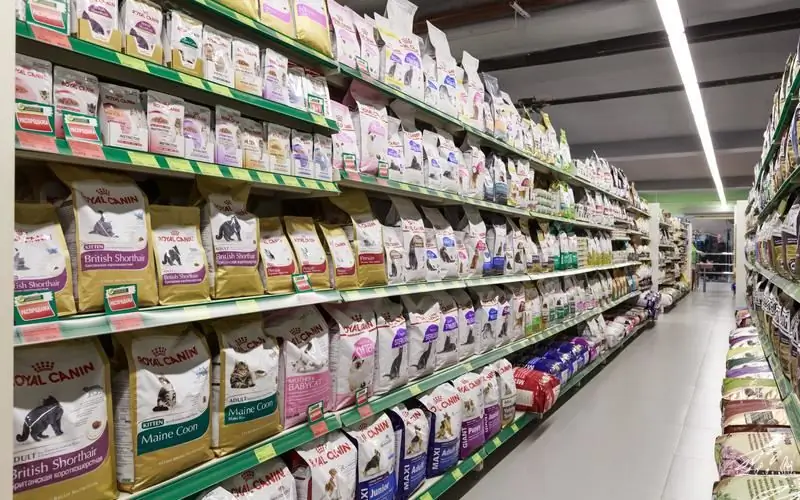
What are the ready-made cat food. How do they differ from each other. What foods should not be given to cats
Is It Possible To Feed A Cat Only Dry Food: Basic Rules Of Feeding, How To Give The Product Correctly, Advice From Veterinarians
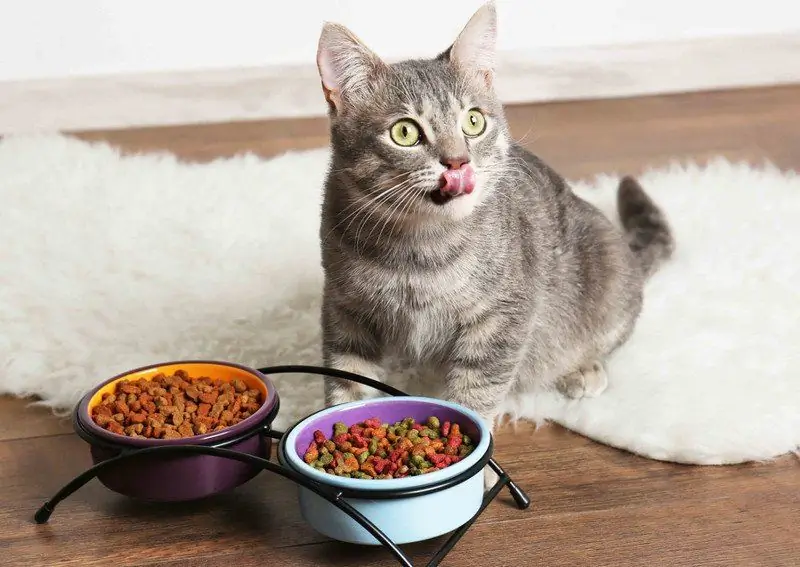
What can be dangerous dry food. How to keep your pet safe when eating ready-made rations. Basic rules for feeding granulated foods
When Can A Kitten Be Given Dry Food: How To Teach And Translate, What To Do If You Don't Want To Eat, How To Force, Advice
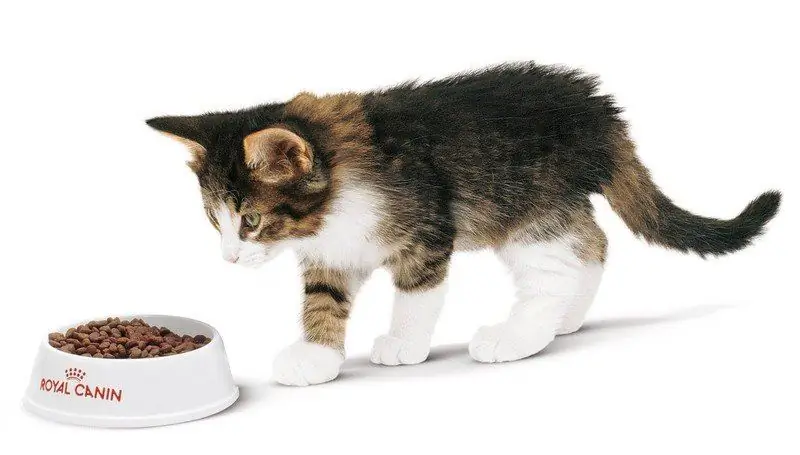
At what age to start accustoming a kitten to dry food. What are the basic rules for eating ready-made rations. What to do if the kitten does not eat dry food
What Food To Feed The Maine Coon (adult Cat And Kitten): Dry And Wet Food, Recommendations, Permitted And Prohibited Foods
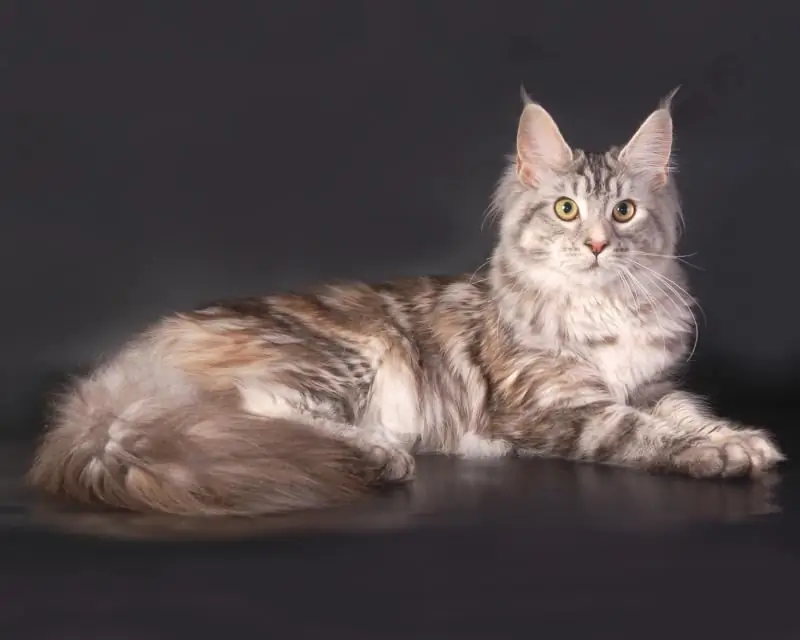
How to feed a kitten and an adult Maine Coon cat. What products are allowed to be given to animals. How to choose dry food for Maine Coon
What Dry Food To Feed A Kitten: The Age From Which You Can Give, A Review Of The Best Brands, Rating For 2019, Reviews Of Veterinarians
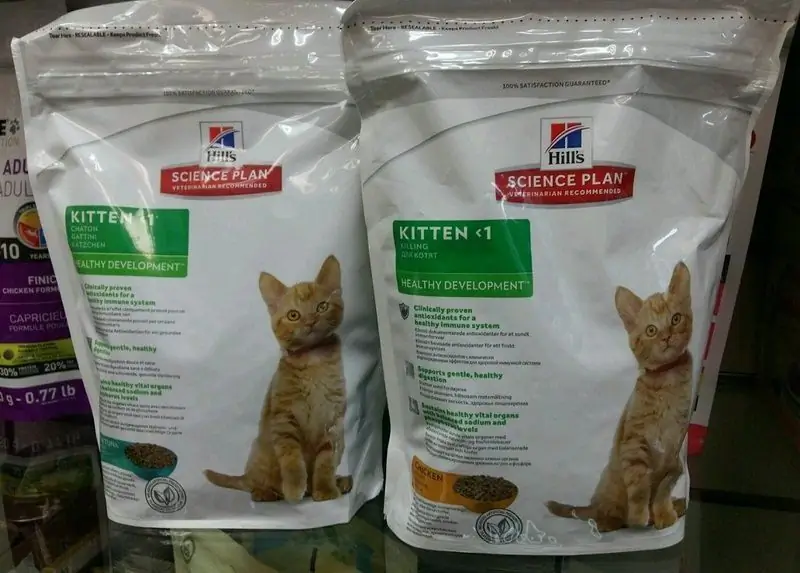
At what age a kitten can be given dry food. Which brand to choose. What should be included in kitten food
